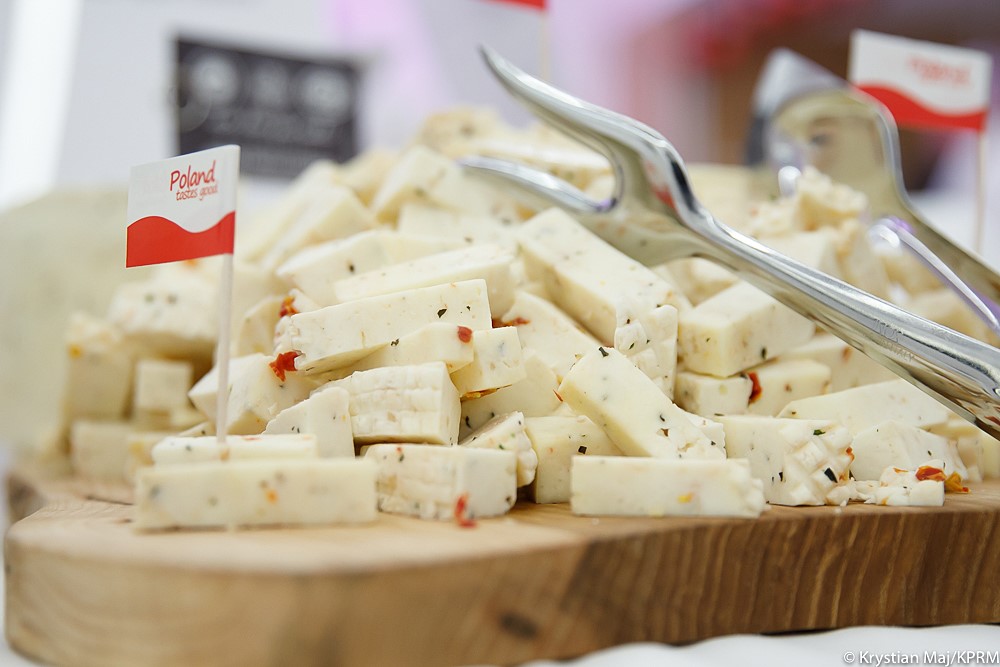Poland’s agricultural ministry has published a list of firms that are importing milk products. It comes amid a renewed push to encourage “patriotic” consumers to support Polish producers, particularly during the current crisis.
On Thursday, in an article headlined “Some are supportive, others only care about profits”, the agriculture ministry named 12 companies that are importing milk from the Czech Republic, Germany, Slovakia and Lithuania, amongst others, “thus limiting sales from Polish farmers”.
The ministry said that it was acting “in the interest of all those who care about supporting the Polish economy” by making people aware of which firms are “importing from abroad instead of buying from Polish farmers, who provide us with food security”.
It added that “under the conditions of the [European] single market, there is, of course, no breach of law, but this does call into question the economic patriotism of these entities”.
‼️ Lista zakładów, które sprowadzają mleko i jego przetwory z zagranicy, ograniczając tym samym zakupy od polskich rolników‼️
Publikujemy ją działając w interesie wszystkich, którym leży na sercu wspieranie polskiej gospodarki.
‼️Zobacz na stronie #MRiRW➡️https://t.co/28JWl9zv2d pic.twitter.com/Qx1Y19F2Oj— Ministerstwo Rolnictwa i Rozwoju Wsi (@MRiRW_GOV_PL) April 22, 2020
The blacklist includes some of Poland’s largest dairy producers, such as Mlekovita, OSM Piątnica, OSM Giżycko and Polmlek. A number of them have already responded to the government’s accusations.
“In January we spent 4% of the value of our exports on imports. I do not think that makes me unpatriotic,” Szczepan Szumowski, head of OSM Giżycko, told Business Insider.
He added that hopefully countries to which Poland exports its dairy products will not start compiling their own “patriotic lists”. His company exports 80% of its products.
Another large cooperative, OSM Piątnica, has responded saying that 97.3% of the milk it uses is produced by Polish farmers associated with the company. The other 2.7% is ecological milk that comes from Lithuania, which the company says is hard to come by in Poland.
The ministry’s blacklist is the latest move in a long-running effort to encourage Poles to buy products made by Polish companies. These began last year, but have been stepped up during the coronavirus crisis, which has made it harder for many Polish firms to export products.
On 6 April, Polish president Andrzej Duda launched the “Consciously Buy Polish Products” (Kupuj świadomie produkt polski) campaign, asking shoppers to pay attention to where products come from, and to prioritise buying Polish ones.
“It supports our economic development and the fight against the crisis, and it supports our entrepreneurs,” said Duda at the inauguration.
In connection with the campaign, the agriculture minister Jan Krzysztof Ardanowski met with some of the largest food producers in Poland over a video call. He called for “solidarity with Polish farmers” by making “a good, patriotic choice to buy Polish food”.
#PAD: Podczas zakupów wybierajmy polskie produkty 🇵🇱#KupujŚwiadomie #ProduktPolski pic.twitter.com/Tc7NDztg0y
— Kancelaria Prezydenta (@prezydentpl) April 6, 2020
Last year the government launched a campaign, “Choose 590 – Saturday for Poland”, to encouraged to pay particular attention to the origin of their purchases. The number 590 refers to the barcode prefix used to indicate that a producer is registered in Poland.
Experts, however, warn that registration in Poland does not necessarily means that production and headquarters are based in the country, nor that the company’s capital in Polish. In addition to looking up the 590 barcode prefix, they advise checking the producer and production location.
Proponents of the campaign cite a study by consulting and accountancy company Grant Thornton, commissioned by the campaign, which finds that a change in consumer habits could make a difference of several tens of billion złoty annually to the Polish economy.
Product made by companies with Polish capital return 79 groszy for each złoty spent, while those made by foreign companies in Poland return 76 groszy. By contrast, only 25 groszy from each zloty sent on fully foreign products remains in Poland.
Main image credits: Krystian Maj/KPRM/Flickr (under public domain)

Maria Wilczek is deputy editor of Notes from Poland. She is a regular writer for The Times, The Economist and Al Jazeera English, and has also featured in Foreign Policy, Politico Europe, The Spectator and Gazeta Wyborcza.




















